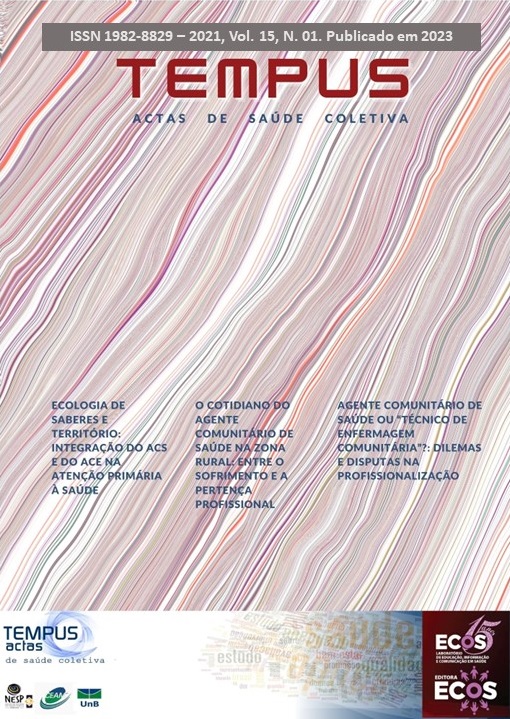Abstract
The professionalization of Community Health Workers (CHW) has undergone changes that sought to train them or transform them into Nursing Assistants (NA) based on disputes between different subjects of interest in mediating with the State. The purpose of this article is to analyze such disputes as an analytical study with a qualitative approach. It starts with the triangulation of data from interviews with key actors and documents related to the professions, using discourse analysis, in light of the critical aspect of the sociology of professions. The results were presented in axes: Normative frameworks for the professionalization of CHW and NA in Brazil; Professional training of CHW: care models and disputed class interests; The reinvention of the CHW and the approximation of their attributions to the NA. It is concluded that the professionalization of CHW advanced more than the NA with regard to labor rights and autonomy in relation to higher education professions. However, the epistemic perspective of their formation is still very fragile, confusing polyvalence with polytechnics. The reinvention of CHW, based on the incorporation of procedures performed by NA, seems to walk in the hegemonic sense of health. Currently, the CHW are at a crossroads in relation to the paths of the profession, needing to define their ethical and political project in view of the SUS and the needs of the population of that historical time.
A Tempus garante critérios rigorosos, por meio de avaliação sistemática. Os autores se responsabilizam pela veracidade e ineditismo do trabalho cabendo a eles a cessão de direitos de publicação à revista. A confiabilidade dos conteúdos e a marca própria de apresentação tem como objetivo uma comunicação personalizada, adaptada aos padrões da revista, na medida em que adota critérios de excelência exigidos por seus usuários e especialistas, considerando os rigores da comunicação científica. Os autores devem especificar sua contribuição individual na concepção, delineamento, execução do trabalho, análise ou interpretação dos dados, redação e aprovação final do manuscrito. Incluir Fontes de financiamento e de apoio logístico das pesquisas. Ao final da submissão do artigo, os autores devem enviar uma declaração de cessão de direitos de publicação à Revista TEMPUS , assinada e no formato PDF (Portable Document Format ): Modelo da declaração de cessão de direitos.
